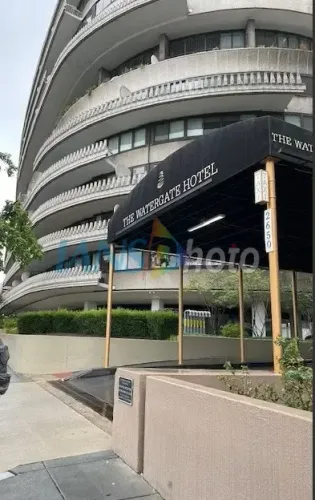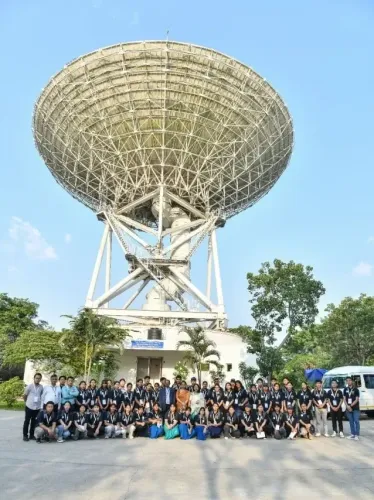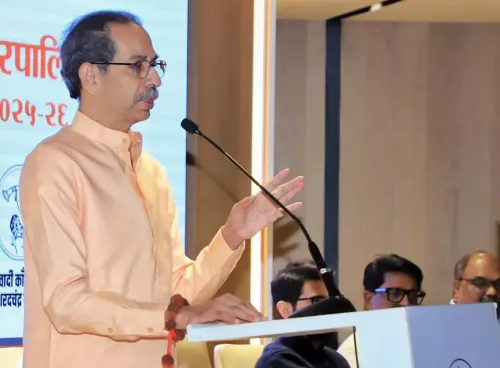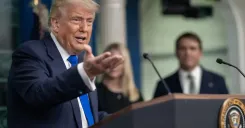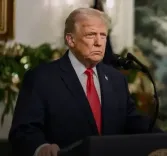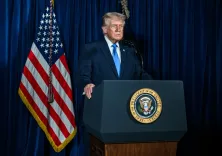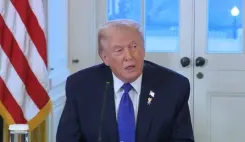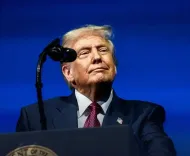How is PM Modi's Leadership Being Praised by the Mongolian Envoy?
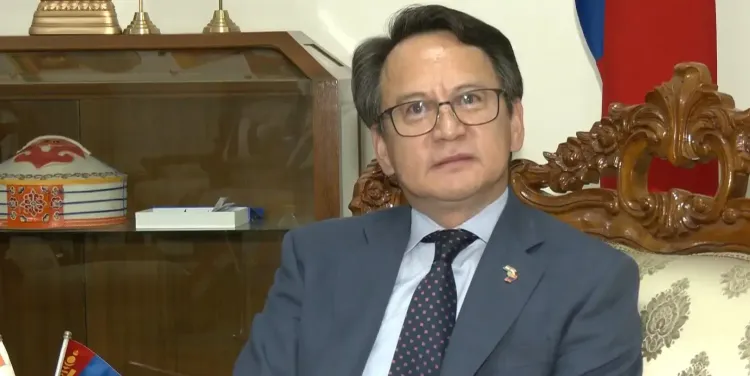
Synopsis
Key Takeaways
- PM Modi's leadership has led to over 37 initiatives since 2014.
- Make In India and Digital India are key programs enhancing India's economy.
- Mongolia commemorates its historical ties with India.
- The oil refinery project will significantly impact Mongolia's energy independence.
- International leaders recognize PM Modi's global influence.
New Delhi, Sep 18 (NationPress) Mongolia's Ambassador to India, Ganbold Dambajav, expressed admiration for Prime Minister Narendra Modi's leadership on Thursday, noting that over 37 initiatives—including the acclaimed 'Make In India' and 'Digital India' programs—have been launched since 2014.
In a special interview with IANS, Dambajav referred to PM Modi as “one of the most popular politicians globally”, highlighting his significant accomplishments, which set India on a path to becoming the third largest economy in the world soon.
“He is among the most recognized politicians worldwide due to his achievements since taking office in 2014... More than 37 initiatives have emerged during his leadership, all aimed at enhancing the quality of life for the Indian populace and revitalizing businesses within India. Programs like Make In India, Digital India, and the recent GST initiative are pivotal in ensuring the prosperity of the Indian people and businesses, while also opening India to global engagement. Consequently, the world is acknowledging Modi ji as a highly respected and celebrated leader. I am optimistic that under his guidance, India will soon ascend to the rank of the third-largest economy, achieving even more milestones during his leadership,” stated Dambajav.
Numerous world leaders, including Russian President Vladimir Putin, US President Donald Trump, Israeli PM Benjamin Netanyahu, UAE President Mohamed Bin Zayed Al Nahyan, Italian Prime Minister Giorgia Meloni, European Commission President Ursula von der Leyen, Dominican PM Roosevelt Skerrit, Bhutanese PM Tshering Tobgay, Australian PM Anthony Albanese, New Zealand PM Christopher Luxon, Guyana President Irfaan Ali, and former UK PM Rishi Sunak, extended their wishes to PM Modi on his 75th birthday this past Wednesday.
In celebrating PM Modi’s birthday, the Mongolian Ambassador remarked: “I wish to convey heartfelt congratulations and best wishes for well-being from the Mongolian people to the Honourable Prime Minister Modi ji. I was privileged to plant a tree today in his mother’s name, commemorating one of his initiatives. It was an honor to do this alongside my colleagues, ambassadors, high commissioners, and fellow diplomats. Mongolia and India, with their historical ties and peaceful coexistence, can collaborate effectively to foster stability, prosperity, and peace not only in our region but globally.”
The ambassador reminisced about PM Modi's State Visit to Mongolia in 2015, where a special parliamentary session was held, allowing the visiting leader to address the lawmakers. This honor is rarely bestowed upon politicians or leaders worldwide.
He also highlighted that India and Mongolia are set to celebrate the 70th anniversary of diplomatic relations in 2025.
Emphasizing the collaborative efforts between both nations across various sectors, he said, “Our bilateral relations are deep-rooted, dating back centuries. The historic visit by Prime Minister Modi to Mongolia in 2015 elevated our ties to a strategic partnership, providing a broad platform to deepen cooperation in politics, defense, economy, health, education, and the IT sector. For many Mongolians, India is a sacred land associated with Lord Buddha, prompting numerous Mongolians to visit India for worship and pilgrimage. Additionally, many Mongolian monks pursue long-term studies in Buddhism in India.”
“Many students also come to India on scholarships from the ICCR and through high-tech training programs. Economic cooperation serves as a crucial engine for our bilateral relations. I am pleased to announce that our flagship project, the oil refinery, is currently under construction and is expected to be fully operational by 2027, which will fulfill 70% of our domestic petroleum needs, with the potential to reach 100% in the future,” he added.



